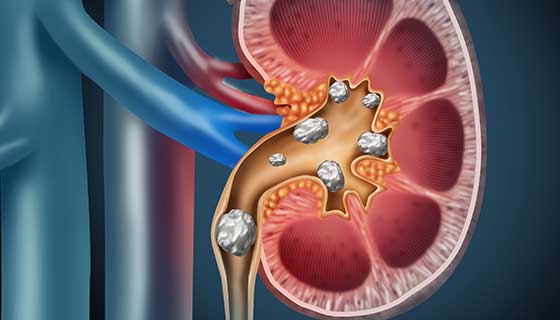- November 8, 2024
- brandingssh
- Comment: 0
- blog
The winter season brings cozy blankets, warm beverages, and festive holidays, but it also presents certain health challenges, particularly for those with kidney-related concerns. The cold weather can impact kidney function, exacerbating conditions in those with existing kidney issues or increasing the risk of developing kidney problems.
This blog aims to shed light on the common kidney problems people face during winter, how to prevent them, and the precautions necessary to maintain kidney health.
1. Dehydration and Its Impact on Kidneys

One of the most common issues during winter is dehydration. As temperatures drop, people tend to drink less water because they don’t feel as thirsty as they would in warmer weather. This can lead to dehydration, which strains the kidneys, as they need sufficient fluid to filter waste and toxins out of the bloodstream effectively.
Prevention:
Staying hydrated is essential, regardless of temperature. Ensure you drink adequate water throughout the day, aiming for at least 8-10 cups. Warm beverages like herbal teas or warm lemon water can help keep you hydrated and encourage you to consume more fluids.
Precautions:
- Set reminders to drink water if you often forget.
- Monitoring your urine color light-colored urine typically indicates good hydration, while darker urine can be a sign of dehydration.
- Avoid excessive caffeine, as it is a diuretic and can lead to fluid loss.
2. Increased Risk of Urinary Tract Infections (UTIs)

Cold weather and reduced fluid intake can lead to urinary tract infections (UTIs), which can potentially progress to kidney infections if untreated. In winter, the immune system can also weaken, making the body more susceptible to infections, including those in the urinary tract.
Prevention:
Drinking sufficient fluids helps flush out bacteria from the urinary tract, lowering the risk of infections. Maintaining proper hygiene, wearing warm clothing, and emptying your bladder regularly also play significant roles in preventing UTIs.
Precautions:
- Practice good hygiene by cleaning the genital area properly, especially after using the restroom.
- Dress warmly to avoid exposing your body to extreme cold.
- Avoid holding urine for long periods; make a habit of emptying your bladder as soon as you feel the urge.
3. Kidney Stones Formation

During winter, the body may become more susceptible to kidney stones. Low water intake, combined with a diet high in sodium or other stone-forming substances, increases the risk of crystal formation in the kidneys. The lack of sweating also contributes to reduced elimination of salts through the skin, causing these salts to accumulate in the body and potentially form stones.
Prevention:
To prevent kidney stones, consume a balanced diet that limits salt and protein intake. Including fruits and vegetables, particularly those high in potassium, can help maintain a healthy mineral balance.
Precautions:
- Limit intake of oxalate-rich foods like spinach, nuts, and chocolate if you’re prone to stones.
- Maintain a regular intake of citrus fruits like oranges and lemons, which can help reduce stone formation.
- Avoid too much salt, as it contributes to higher calcium excretion in urine, increasing stone risk.
4. Hypertension and Kidney Function

Cold weather can constrict blood vessels, leading to higher blood pressure. Those with pre-existing hypertension are at increased risk during winter, and high blood pressure is a primary contributor to kidney disease. Elevated blood pressure strains the kidneys and can exacerbate or lead to chronic kidney disease (CKD).
Prevention:
To maintain blood pressure within a healthy range, manage your sodium intake and exercise regularly. Aim to eat a diet rich in fruits, vegetables, and whole grains, and monitor your blood pressure routinely, especially during the winter months.
Precautions:
- Exercise indoors if outdoor activity is challenging in winter.
- Limit high-salt foods like processed snacks and canned goods.
- Consider taking blood pressure readings at home to detect any unusual rises.
5. Gout and Kidney Complications

Cold weather can exacerbate gout flare-ups in individuals who are prone to this condition. Gout is a type of arthritis caused by excess uric acid, and high uric acid levels can lead to the formation of kidney stones or other complications affecting the kidneys. During winter, people often consume rich, high-protein foods which may worsen gout symptoms.
Prevention:
To manage uric acid levels, reduce the intake of foods rich in purines, such as red meat and shellfish, and avoid alcohol. Including more plant-based proteins and hydrating well can help manage symptoms.
Precautions:
- Avoid alcohol and high-protein foods that can spike uric acid.
- Stay active to keep circulation optimal and prevent uric acid build-up in joints.
- Take medications as prescribed if you have chronic gout to control uric acid levels.
6. Chronic Kidney Disease (CKD) Complications

Winter weather can cause a series of challenges for individuals with chronic kidney disease. Cold temperatures often mean reduced physical activity, and the rich foods common in winter diets can worsen CKD symptoms by causing fluid retention and electrolyte imbalance.
Prevention:
Those with CKD should follow a kidney-friendly diet, limit salt intake, and stay active. Adhering to prescribed medications and regular check-ups are essential to monitor kidney function and prevent progression.
Precautions:
- Limit fluid intake as recommended by your healthcare provider to prevent fluid overload.
- Avoid high-potassium foods if you have advanced CKD.
- Stay warm and active to reduce blood pressure fluctuations that can impact kidney function.
7. Hypothermia and Reduced Kidney Function

In extreme colds, hypothermia can be a risk. Hypothermia affects blood flow and can impair kidney function by reducing blood flow to the organs. For elderly people, children, or those with existing kidney disease, the risk of reduced kidney function due to hypothermia is higher.
Prevention:
Wearing layered clothing, avoiding prolonged exposure to cold, and staying indoors during extreme weather can prevent hypothermia and its effects on kidney function.
Precautions:
- Dress warmly in layers to maintain body temperature.
- Limit time outdoors in very cold conditions.
- Monitor body temperature if you start feeling very cold or sluggish.
- General Tips to Protect Your Kidneys During Winter
Get Regular Exercise: Physical activity helps maintain circulation, regulates blood pressure, and promotes overall kidney health. Even light exercise can be beneficial in winter.
Follow a Kidney-Friendly Diet: Consume more fruits, vegetables, and whole grains, and avoid processed foods high in salt and sugar.
Avoid Excessive Alcohol and Caffeine: These substances can dehydrate you, impacting kidney function and overall health.
Monitor Your Health Regularly:
Regular check-ups, especially if you have any pre-existing kidney conditions, are crucial for early detection and management of potential kidney problems.
Manage Other Chronic Conditions: Conditions like diabetes and hypertension can contribute to kidney issues. Properly managing these through medication, diet, and lifestyle changes is essential.
Kidneys are vital organs that filter waste and excess fluids from the blood, maintaining electrolyte balance and supporting overall health. Cold weather can pose additional risks, making it essential to take preventive measures and remain vigilant about kidney health. By staying hydrated, maintaining a balanced diet, and protecting yourself from the cold, you can safeguard your kidneys and prevent common winter-related kidney issues.
Taking the right steps to prevent and manage these problems will allow you to enjoy the winter season with less worry about kidney health. If you have existing kidney conditions, consult your healthcare provider for personalized advice tailored to your needs.

